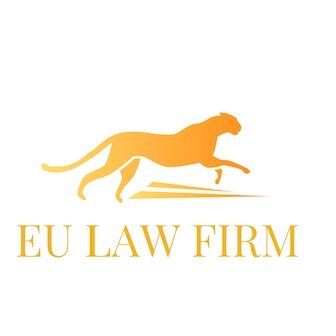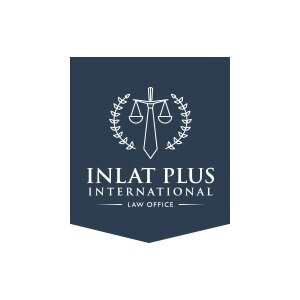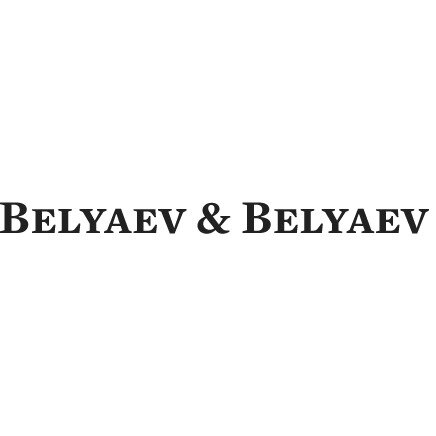Best Climate Change Law Lawyers in Latvia
Share your needs with us, get contacted by law firms.
Free. Takes 2 min.
Or refine your search by selecting a city:
List of the best lawyers in Latvia
About Climate Change Law Law in Latvia
Climate Change Law in Latvia is a specialized area of environmental law that focuses on regulating activities related to greenhouse gas emissions, energy efficiency, renewable energy, land use, and climate adaptation. As a member of the European Union, Latvia's legal framework for addressing climate change aligns closely with EU directives and international agreements such as the Paris Agreement. The primary objective of these laws is to mitigate the impacts of climate change, ensure a sustainable environment, and promote economic growth through green policies.
Why You May Need a Lawyer
Legal issues in Climate Change Law can be complex and technical, often involving cross-sectoral regulations and compliance requirements. You may need a lawyer in situations such as:
- Obtaining permits for activities that impact greenhouse gas emissions or renewable energy projects
- Compliance with local, EU, and international climate-related obligations
- Challenging or defending enforcement actions or fines related to environmental violations
- Advising on environmental impact assessments for new developments
- Participating in, or objecting to, public consultations on climate policies or environmental planning
- Protecting your rights in case of property or business impacts due to climate adaptation measures
- Contractual arrangements involving carbon credits or emissions trading
Local Laws Overview
Latvia's climate policy is built on several key laws and regulations. The cornerstone is the Law on Pollution, which regulates emissions rules, permitting, and environmental impact assessments. The Law on Energy End-use Efficiency outlines targets for energy savings and incentives for energy-efficient investments. Latvia participates in the European Union Emissions Trading System (EU ETS), which caps total greenhouse gas emissions from certain sectors and allows trading of emission allowances.
Other important regulations include the Law on Renewable Energy Sources, which promotes the use of wind, solar, and biomass energy; and the Law on Environmental Protection, which frames Latvia's approach to sustainability and adaptation actions. In recent years, municipalities have also adopted local climate strategies to further strengthen action at the community level.
Frequently Asked Questions
What is the main climate change law in Latvia?
The main legal instruments are the Law on Pollution, the Law on Energy End-use Efficiency, and the Law on Environmental Protection. These are complemented by EU regulations and international agreements.
Do I need a permit for a business activity that emits greenhouse gases?
Yes, permits are typically required for activities listed in the Law on Pollution or those that fall under the EU Emissions Trading System. Legal advice can help determine your permit obligations.
What are Latvia's obligations under the Paris Agreement?
Latvia is committed to reducing greenhouse gas emissions, enhancing carbon sinks, and implementing adaptation strategies as part of the European Union's nationally determined contribution.
Are there incentives for using renewable energy in Latvia?
Yes, Latvia offers various incentives for renewable energy projects, including financial support schemes and priority grid access for certain technologies, as specified in the Law on Renewable Energy Sources.
How does Latvia regulate energy efficiency?
Through the Law on Energy End-use Efficiency, mandatory energy audits, and programs for households and businesses that encourage energy-saving measures and invest in efficient technologies.
Can individuals participate in public consultations about climate projects?
Yes, the law encourages public involvement. You are entitled to participate in consultations on significant climate and environmental projects or policies.
What penalties exist for violating climate-related regulations?
Penalties range from administrative fines to suspension of activities, depending on the severity of the violation and the relevant law breached.
What is emissions trading and how does it affect businesses?
Emissions trading allows companies to buy or sell emissions allowances under the EU ETS. This system rewards companies that reduce emissions and ensures compliance among heavily polluting sectors.
Can landowners claim compensation for climate mitigation measures affecting their land?
Compensation can be available depending on the specific circumstances and the impact of government measures. Legal consultation is recommended to assess eligibility and claim options.
Who enforces climate change laws in Latvia?
Enforcement is carried out by the State Environmental Service, relevant ministries, and municipal authorities, often in cooperation with EU agencies.
Additional Resources
If you need more information or wish to learn about Climate Change Law in Latvia, you can contact or consult with:
- Ministry of Environmental Protection and Regional Development (VARAM) - the main government body responsible for climate change policy
- State Environmental Service - enforcement and regulatory information
- Latvian Environmental Protection Fund - support for green projects and educational resources
- Latvian Chamber of Commerce and Industry - for legal updates relevant to businesses
- Environmental NGOs such as the Latvian Fund for Nature and Green Liberty
- University law faculties and research centers specializing in environmental and climate law
Next Steps
If you believe you need legal help with a Climate Change Law matter in Latvia, here is how you can proceed:
- Identify the specific issue you are facing and gather relevant documents such as permits, notifications, or correspondence
- Contact a qualified lawyer or law firm with experience in environmental and climate change law
- Consult with relevant government agencies for guidance and potential alternative solutions
- Participate in public hearings or submit your views during public consultations if your matter involves a regulatory or policy process
- Keep up to date with changes in national and EU climate regulations
- Consider mediation or negotiation as an alternative to formal litigation when possible
Taking these steps can help you protect your legal interests and ensure compliance with Latvia's climate change regulations and policies.
Lawzana helps you find the best lawyers and law firms in Latvia through a curated and pre-screened list of qualified legal professionals. Our platform offers rankings and detailed profiles of attorneys and law firms, allowing you to compare based on practice areas, including Climate Change Law, experience, and client feedback.
Each profile includes a description of the firm's areas of practice, client reviews, team members and partners, year of establishment, spoken languages, office locations, contact information, social media presence, and any published articles or resources. Most firms on our platform speak English and are experienced in both local and international legal matters.
Get a quote from top-rated law firms in Latvia — quickly, securely, and without unnecessary hassle.
Disclaimer:
The information provided on this page is for general informational purposes only and does not constitute legal advice. While we strive to ensure the accuracy and relevance of the content, legal information may change over time, and interpretations of the law can vary. You should always consult with a qualified legal professional for advice specific to your situation.
We disclaim all liability for actions taken or not taken based on the content of this page. If you believe any information is incorrect or outdated, please contact us, and we will review and update it where appropriate.
Browse climate change law law firms by city in Latvia
Refine your search by selecting a city.
















